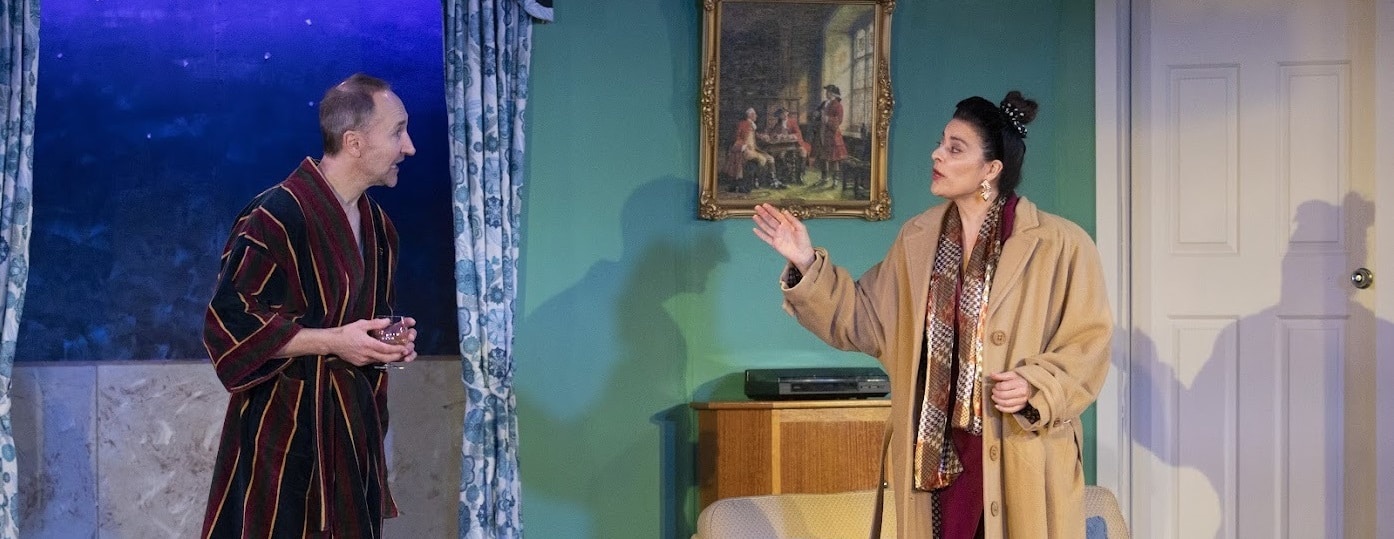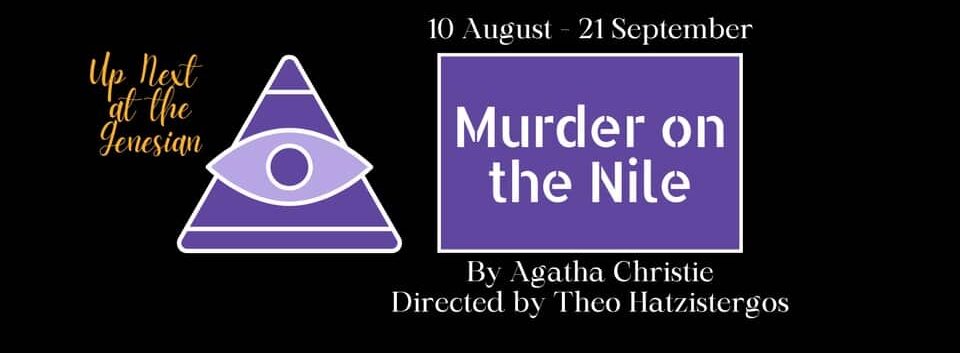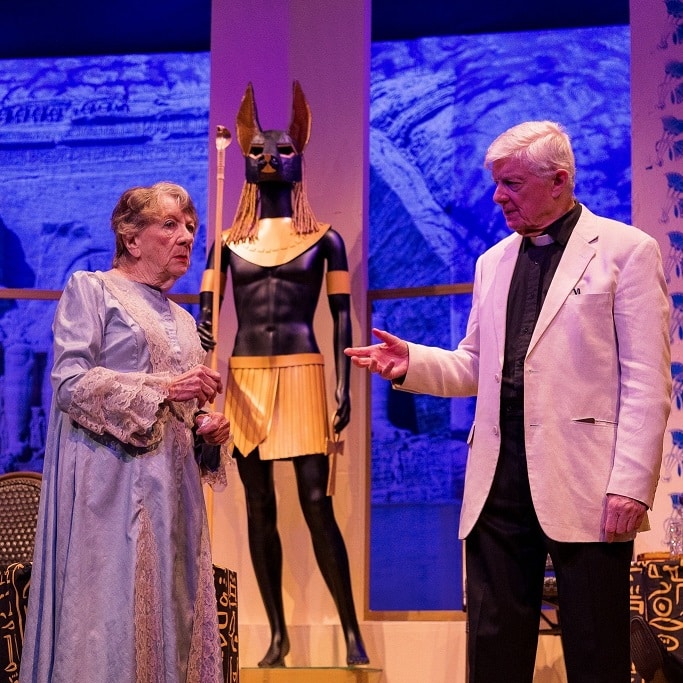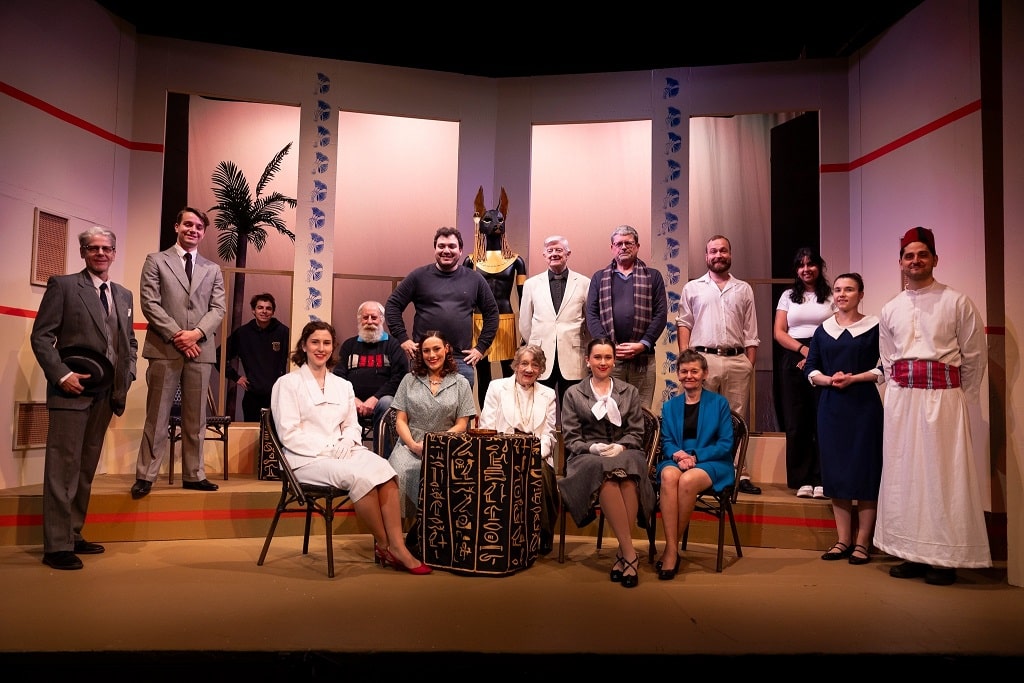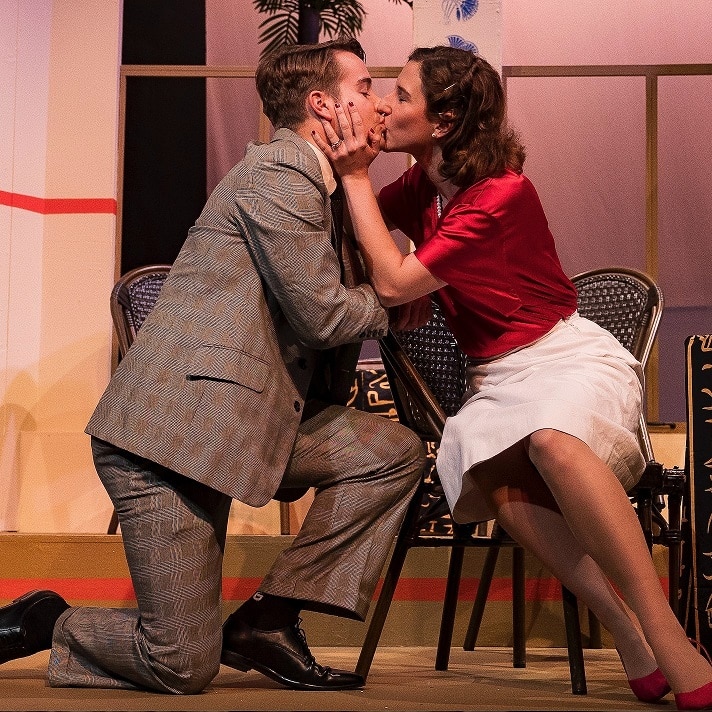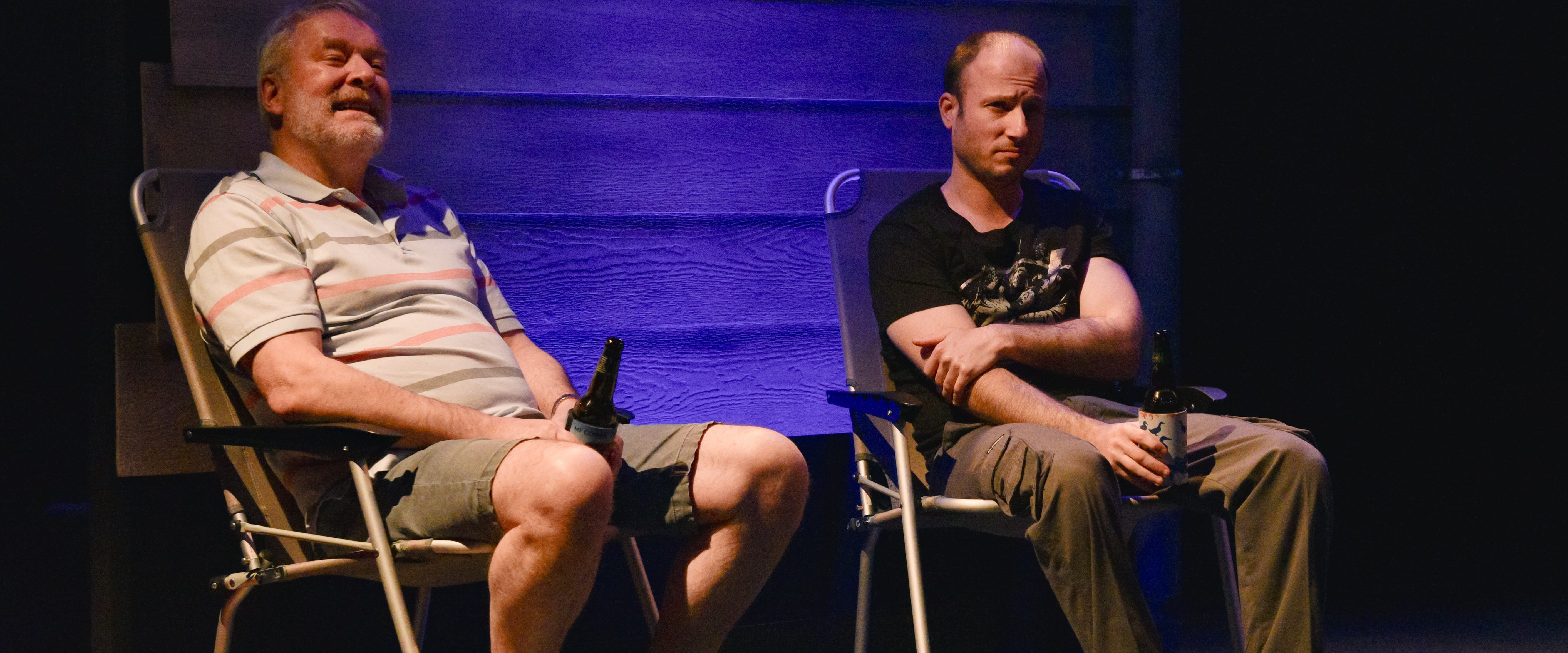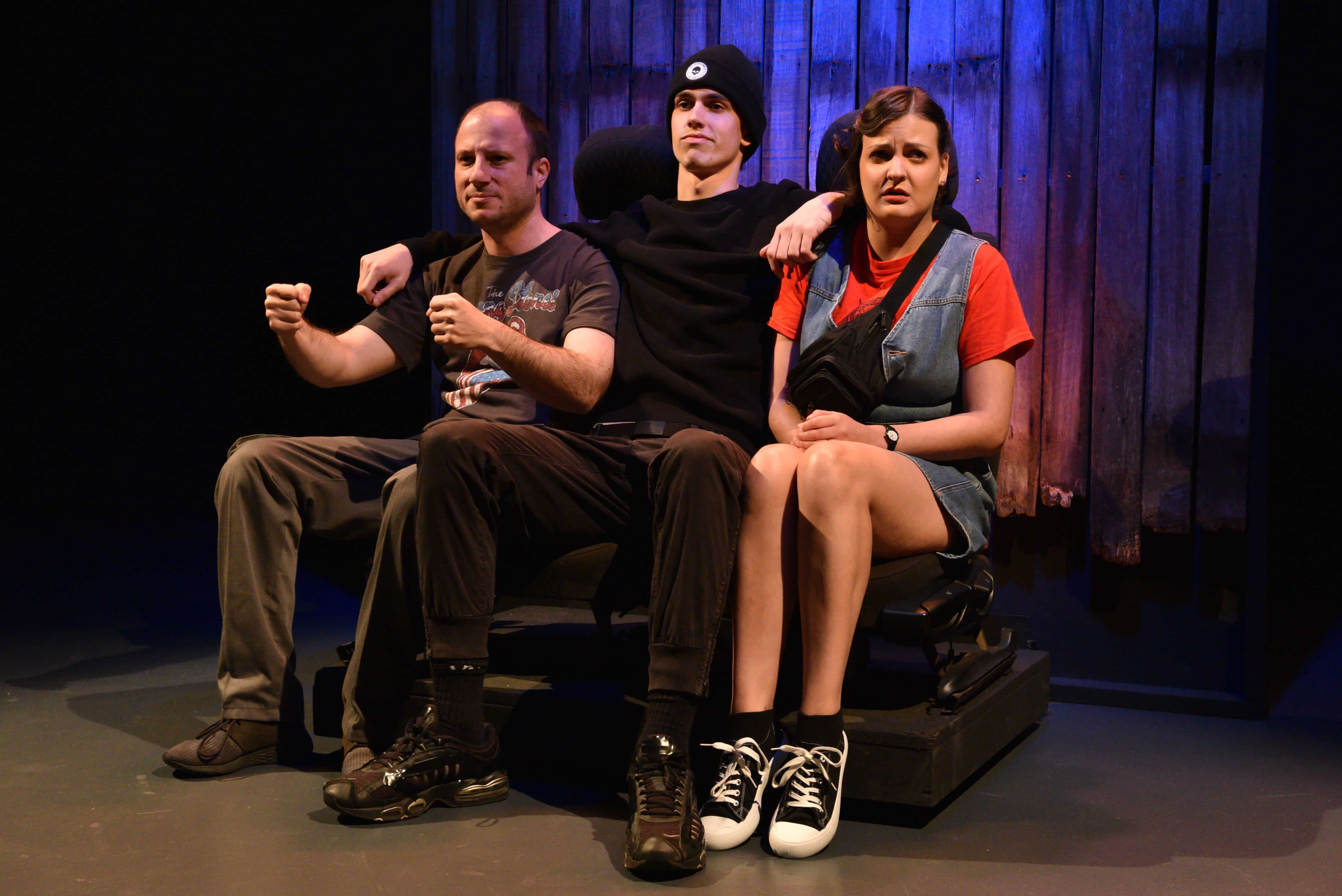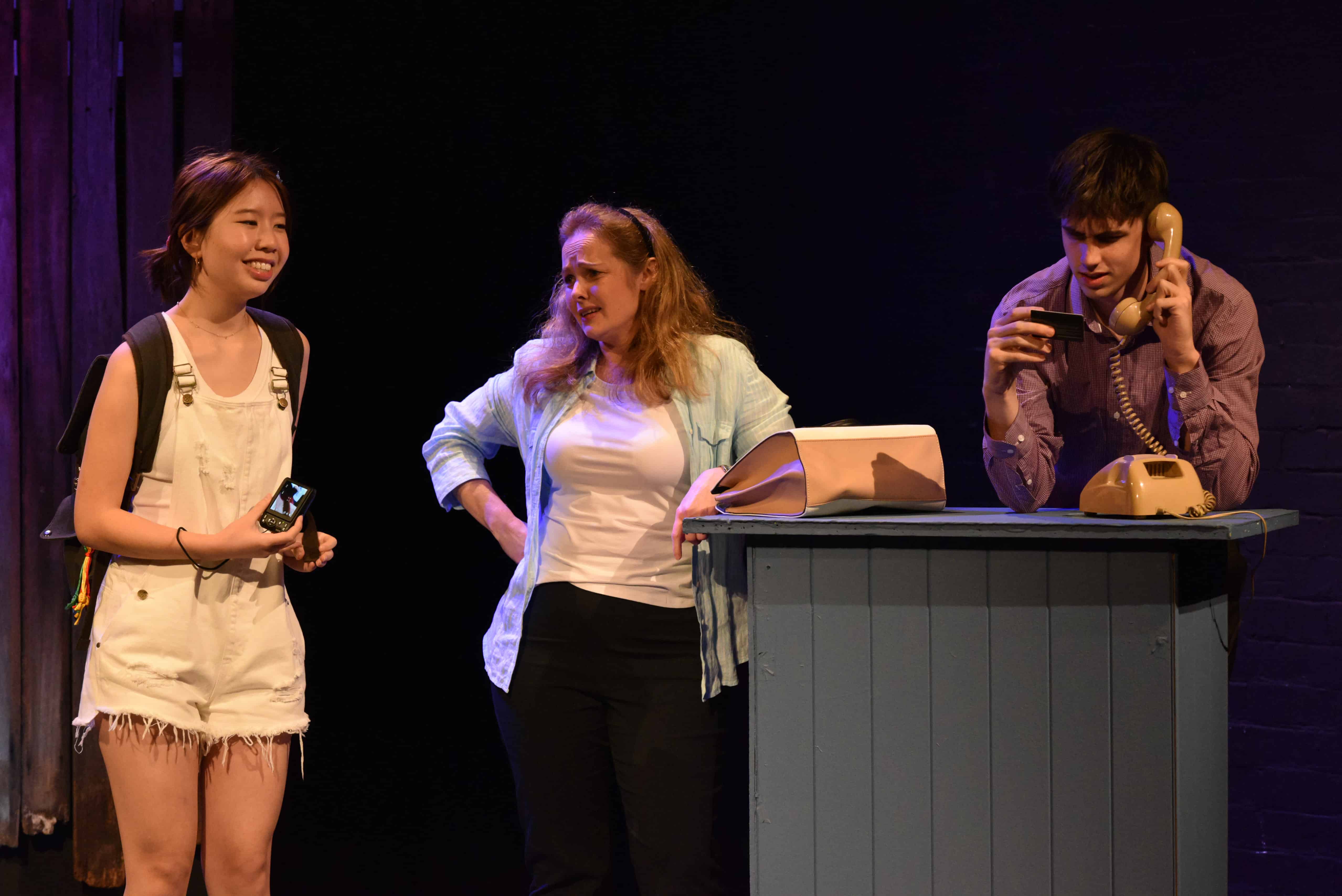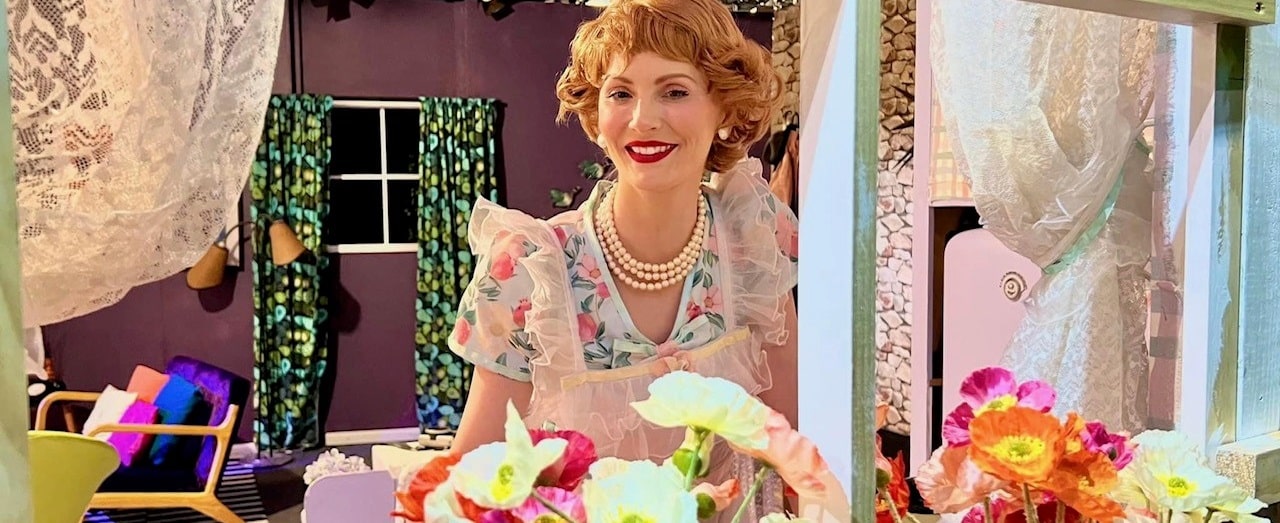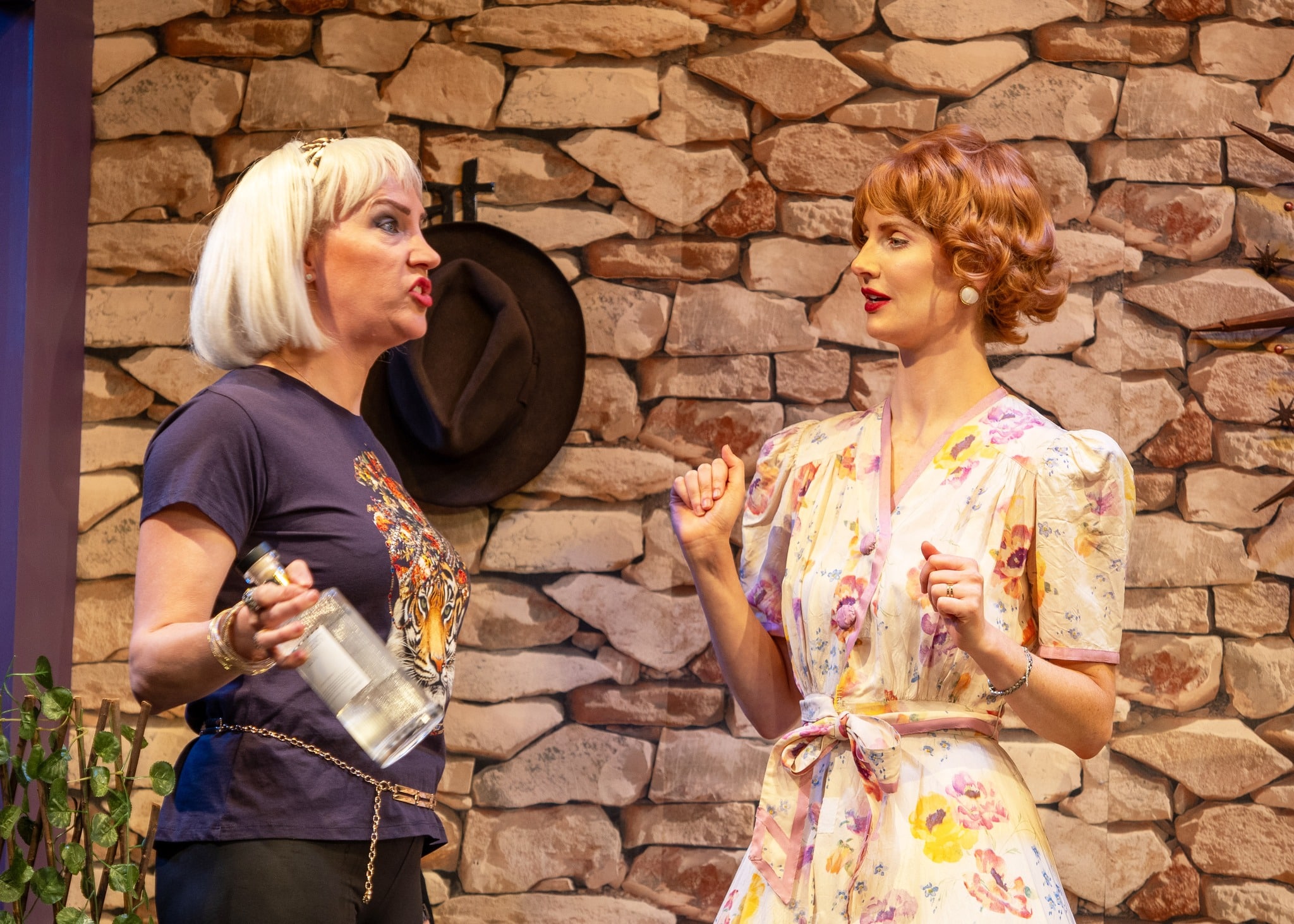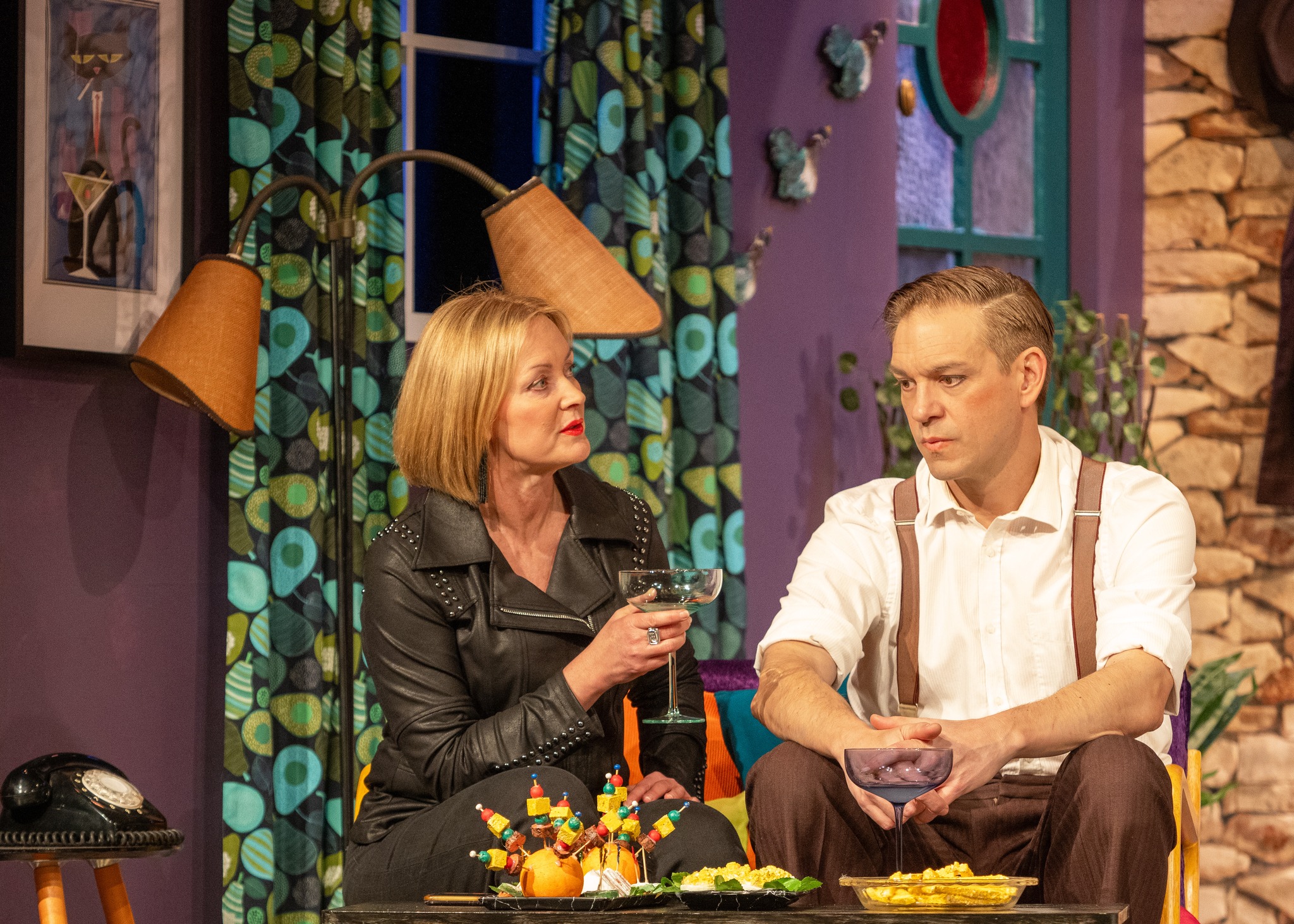A well thought out murder has always been the premise for a juicy plot. A traditional whodunnit which has red herrings and hidden clues, complete with an eccentric detective. This is what the main character, author and critic Selwyn, excels at with his best selling novels. We begin the play being introduced to the self inflated, egotistical Selwn, played with relish by Ross Alexander wearing a sports coat, a pocket handkerchief and a fancy silk neckerchief scarf – a nice touch by the costume designer Cettina Lahiri to convey the success of his career.
Selwyn and his assistant Christine, played by Fabiola Pellegrino, are discussing his latest review of a rival’s novel, which he essentially deems as rubbish and takes great delight in taking it apart! The dripping venom and confidence in Selwyn’s words is a key factor in this story as he is someone who likes to be in charge; to lead the story.
When something happens to Selwyn, the next door neighbour Peter Fletcher guides us through his own theories of what he thinks has led up to this murder. Rawdon Waller, as Peter Fletcher, gives us a delightful performance as the amateur sleuth, who excitedly tries to solve the mystery. Dressed flamboyantly in a fancy dressing gown, he is a fan of Selwyn’s murder mystery novels and Rawdon’s portrayal of Peter’s enthusiasm for being in a real life murder mystery was very amusing. His lines and physical comedy had the audience laughing many times over.
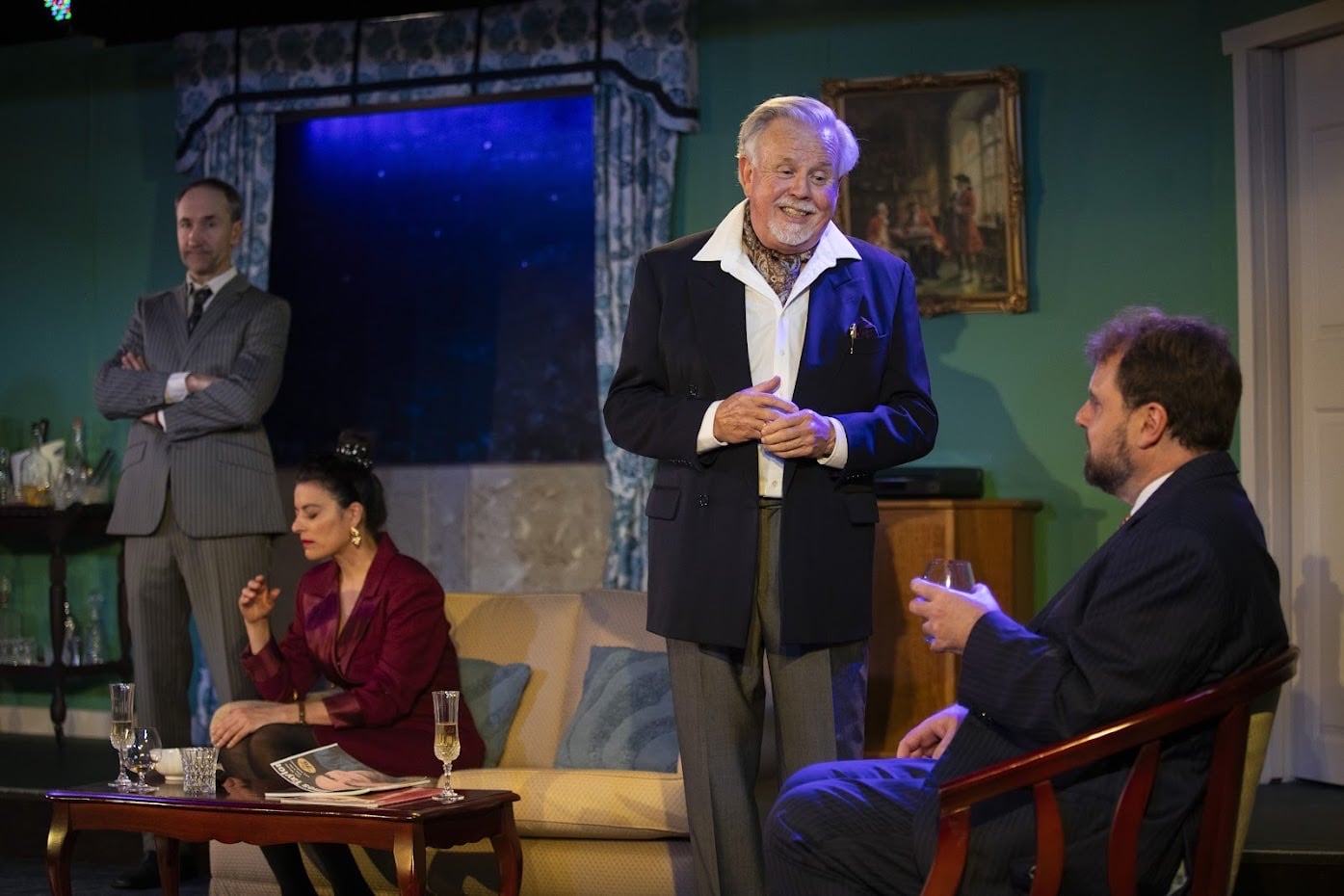
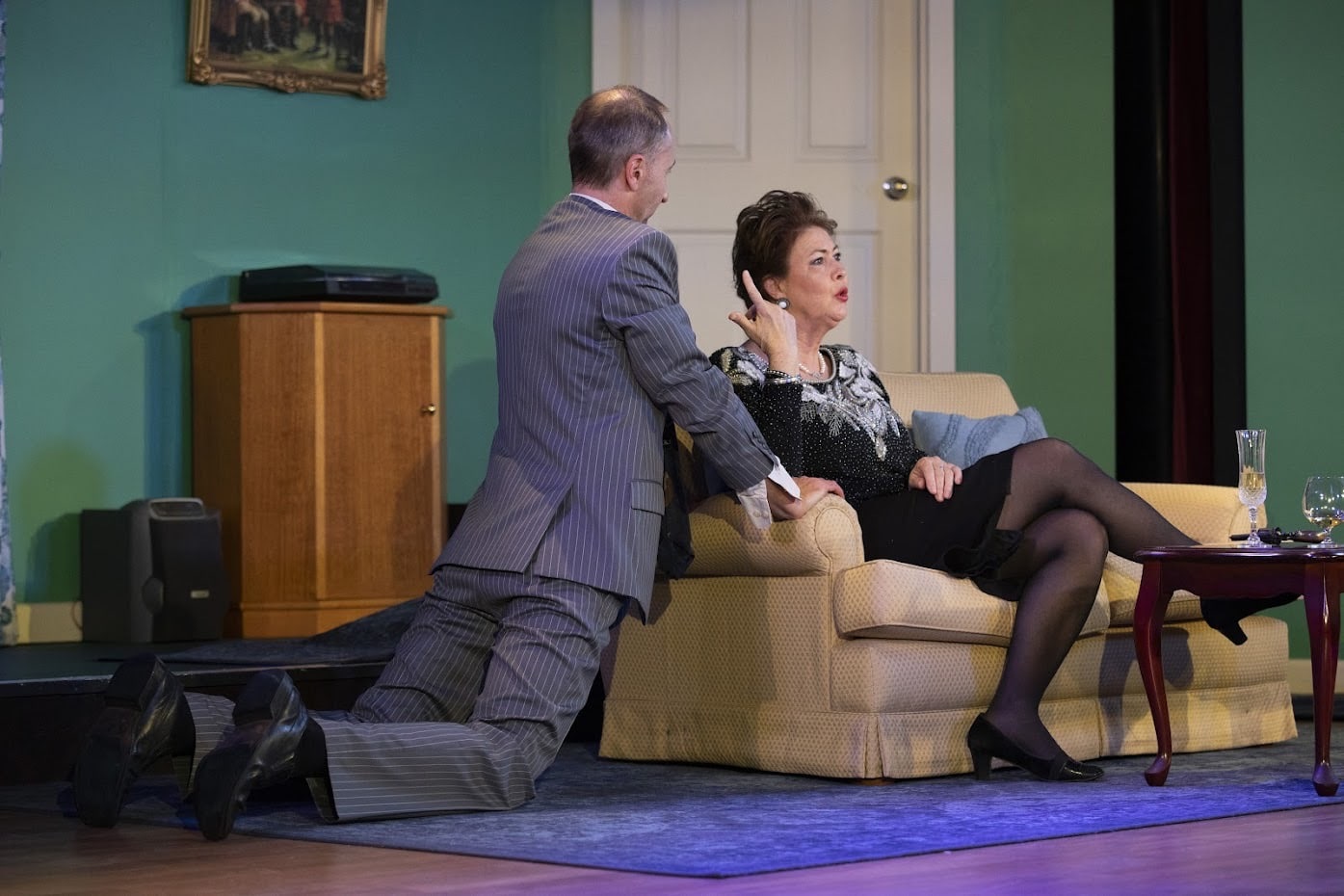
There are the ‘usual suspects’ in this story – Christine the devoted secretary, Imogen the wife who wants a divorce, and the publisher, who also happens to be Imogen’s lover, John. When faced with accusations, Brian May’s John appears helplessly out of his depth and this is communicated in both action and speech in a way which made me laugh and feel sorry for the poor man.
Imogen, played by Julie Mathers, was sassy and confident, complete with big hair and an 80’s sequinned top. Julie Mathers and Ross Alexander had their characters at the top of their form in a believable love/ hate marriage relationship. They were arguing, throwing insults and pointed remarks at each other and quickly bouncing back for more. It was a like watching a succinct tennis match with clever and witty dialogue as the ball.
The play, written by Duncan Greenwood and Robert King, had its strength in the script which was full of dark one liners and clever twists and turns. It was quite a wordy play, but the Hunters Hill Theatre’s strong cast, led by director Margaret Olive, didn’t let Murder by the Book drag.
The setting of 1980’s London meant we had a living room on stage with a traditional rolled armed couch, a wooden writing desk, record player (which was used to musically enhance a scene) typewriter and a dial handset telephone. These props by Coralie Fraser all added to the authenticity of the era. Wayne Chee’s set design ensured the living room had an open and spacious feel, where the audience could view the actors clearly. I noticed that there was a clever addition of something behind the couch which I won’t give away, would have made Selwyn feel more comfortable for some of the scenes!
If you are a fan of the clever whodunnit genre, come along to see the Hunters Hill Theatre’s performance of Murder by the Book. You’ll be guessing the Who, What, Why all throughout the play, not just at the end!
Running Time: Two hours, including a 20 minutes interval
Season: 7 -31 September 2024
Hunters Hill Theatre at Club Ryde
728 Victoria Rd, Ryde
Tickets from $32
Photographer: Kris Egan
